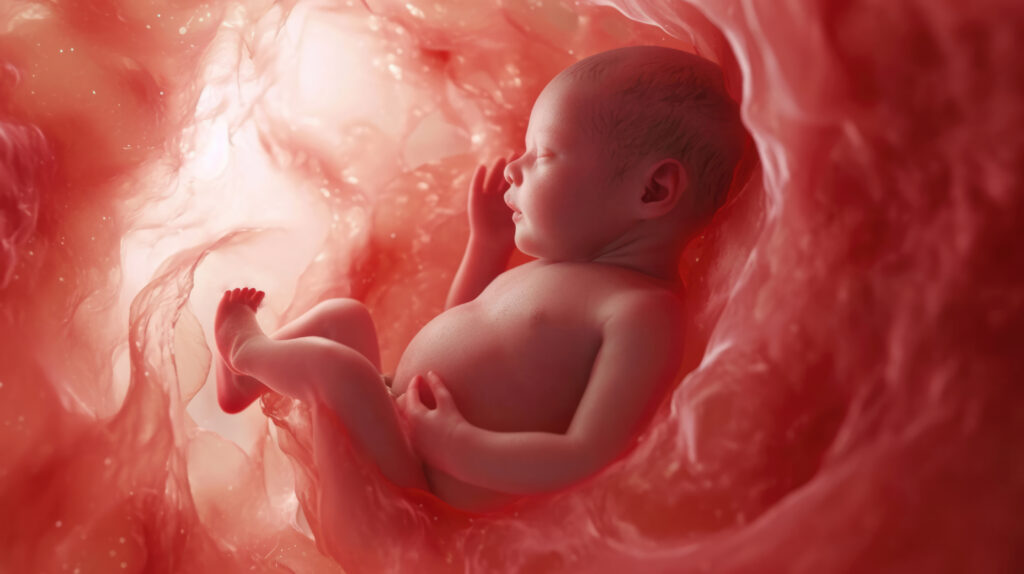Lozier Institute Submits Supreme Court Brief in Pregnancy Help Center Case
by Thomas M. Messner, J.D.
Charlotte Lozier Institute submitted a “friend of the court” brief to the U.S. Supreme Court on April 20 in support of pregnancy help centers (PHCs). The PHCs have challenged a California law, arguing that it forces them to post contact information for a county office that refers for abortion and burdens their ability to advertise their services.
Quoting former U.S. Representative John Boehner, Lozier Institute argues that “Pregnancy Help Centers make up ‘one of the most important grassroots movements in American history.’” Lozier argues that the Supreme Court “should grant the petition for a writ of certiorari and protect the freedom of Pregnancy Help Centers to serve mothers and children in a way that is consistent with their mission and values.”
In its brief, Lozier Institute provides an extensive overview of the important social contributions PHCs make. Lozier’s brief draws heavily on research prepared by the Family Research Council that estimates the accomplishments of nearly 2,000 PHCs using data collected by centers affiliated with Care Net, Heartbeat International, and the National Institute of Family and Life Advocates.
Lozier sets out findings on PHC contributions, as reported in FRC’s study, including:
- “‘In 2010, [PHCs] served over 2.3 million people with pregnancy assistance, abstinence counseling and education, community outreach programs and referrals, and public health linkages.’”
- “‘A conservative estimate of community cost savings for these services during 2010 is over $100 million.’”
- “‘In addition to specific cost savings, pregnancy centers drew on the help of 71,000 volunteers who performed an estimated 5,705,000 uncompensated hours of work in 2010.’”
After informing the Court of the extensive contributions made by PHCs, Lozier then argues that forcing pro-life volunteers and help centers to refer for abortion undermines their mission and the values that inspire them to serve mothers and children. As the brief states,
For the people who are employed by, donate to, or volunteer with local PHCs, the work is truly a labor of love. PHCs are devoted to loving both mothers and children through practical action. In many if not most cases, this devotion springs from deeply held religious or moral commitments about the value of all human life and the obligation to serve those in society who are suffering, in crisis, or at disadvantage. Forcing PHCs to refer for abortion undermines their mission and burdens the principles that inspire them to serve vulnerable mothers and children.
Whatever interest California might assert in providing information about the availability of abortion services, it cannot be denied that, as this Court has stated, abortion is a “unique act,” Planned Parenthood of Se. Pennsylvania v. Casey, 505 U.S. 833, 852 (1992), and is “inherently different from other medical procedures, because no other procedure involves the purposeful termination of a potential life,” Harris v. McRae, 448 U.S. 297, 325 (1980). In the words of one federal court, “[t]he rationality of distinguishing between abortion services and other medical services when regulating physicians or women’s healthcare has long been acknowledged by Supreme Court precedent.” Greenville Women’s Clinic v. Bryant, 222 F.3d 157, 173 (4th Cir. 2000). Nowhere is the “unique” and “inherently different” nature of abortion more deeply felt than in forcing pro-life individuals and institutions to promote or participate in it.
The case is called NIFLA v. Becerra. The pro-life organizations challenging the California law include two pregnancy help centers and the national pregnancy center affiliation organization National Institute of Family and Life Advocates (NIFLA).
The public interest law firm Alliance Defending Freedom (ADF) represents the pro-life organizations. According to an ADF summary of the case, the California law “requires licensed medical centers that offer free, pro-life help to pregnant women to post a disclosure saying that California provides free or low-cost abortion and contraception services. The disclosure must also include a phone number for a county office that refers women to Planned Parenthood and other abortionists.”
ADF also explains that the California law “forces unlicensed pregnancy centers to add large disclosures about their non-medical status in all advertisements.”
The pro-life organizations have asked the Supreme Court to take the case and protect their First Amendment freedoms. The Court will likely decide later this year whether to take the case.
For more information about the case, visit Alliance Defending Freedom’s resource page.

























